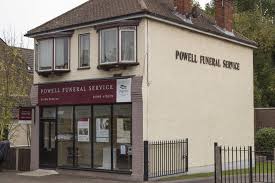The Importance of Funeral Directors in End-of-Life Arrangements

Introduction
Funeral directors play a crucial role in helping families navigate the complexities of end-of-life arrangements. Their responsibilities extend beyond mere logistics; they provide emotional support and guidance at a time when families are often experiencing profound grief. Understanding the significance of a funeral director is essential, particularly in the aftermath of the COVID-19 pandemic, which has led to an increased awareness of death care services and the importance of comprehensive support during bereavement.
The Essential Duties of Funeral Directors
Funeral directors are professionally trained individuals responsible for the preparation and handling of the deceased, as well as the orchestration of funeral services. Their tasks include:
- Transportation of the Deceased: Ensuring the safe and respectful transport of the deceased from the place of death to the funeral home is a fundamental responsibility.
- Preparation of the Body: This includes embalming, dressing, and cosmetic restoration, allowing families a dignified viewing experience.
- Arranging Funeral Services: Funeral directors coordinate all aspects of the service, from selecting a venue to arranging music and officiants.
- Legal Documentation: They assist families in completing the necessary paperwork, including death certificates and burial permits.
- Emotional Support: Perhaps most importantly, funeral directors provide compassionate support, helping families through the decision-making process and offering counselling resources.
Current Trends in the Funeral Industry
The funeral industry is evolving, with a growing trend towards personalised services. Families are now more inclined to create unique tributes that reflect the life and personality of their loved ones. This shift has led to funeral directors adopting more creative approaches, offering bespoke services that may include themed funerals, live streaming services for distant relatives, and even eco-friendly burial options.
Additionally, the impact of COVID-19 has sparked conversations around alternative funeral arrangements, such as direct cremation, which allows families to forgo a formal service and instead hold a memorial at a later date. These changes demonstrate the industry’s adaptability in catering to the needs and wishes of modern families.
Conclusion
In conclusion, the role of a funeral director extends far beyond the logistical aspects of end-of-life arrangements. They serve as a vital pillar of support for grieving families, offering both practical assistance and emotional comfort during an incredibly challenging time. As trends in the industry continue to evolve, the importance of compassionate and personalised care remains constant. For readers, understanding this profession can provide insight into the critical role funeral directors play in our society, highlighting the necessity of thoughtful end-of-life planning and support.









